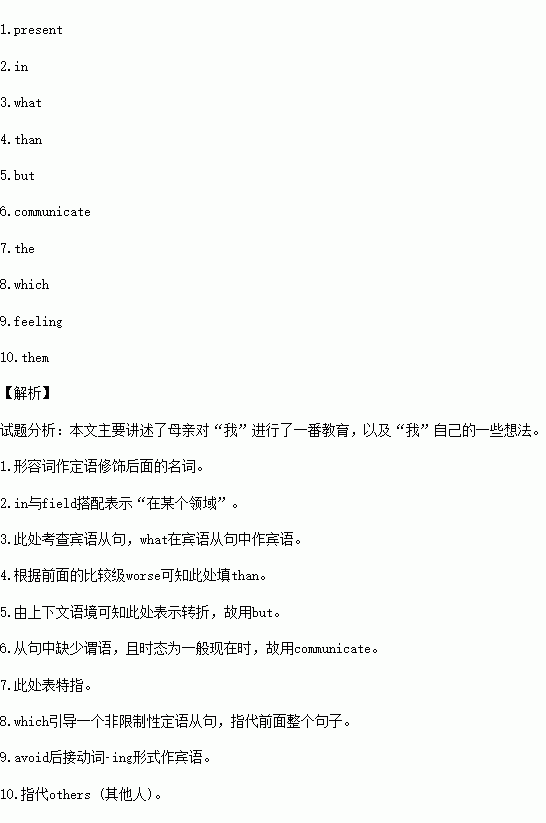题目内容
语法填空。
My mother had some words for me. “Don't be always particular about your 1. (presence) work and income.” My mother said to me softly, “As a matter of fact, you have done well and made great achievement 2. the entertainment field.” My face turned red on hearing 3. my mother said.She is right. Many other actors are worse off 4. me at present, 5._ they are likely to be content with their life and be happy most of the time. I feel upset with my situation just because I seldom 6. (communication) with others and it seems as if I am cut off 7._ outside world. I should have known when to hold fast and when to let go, 8. can help me avoid 9. (feel) great pressure and upset. I must know how to care for others and try not to misunderstand 10..In this way, I will get close to leading a happy life.

